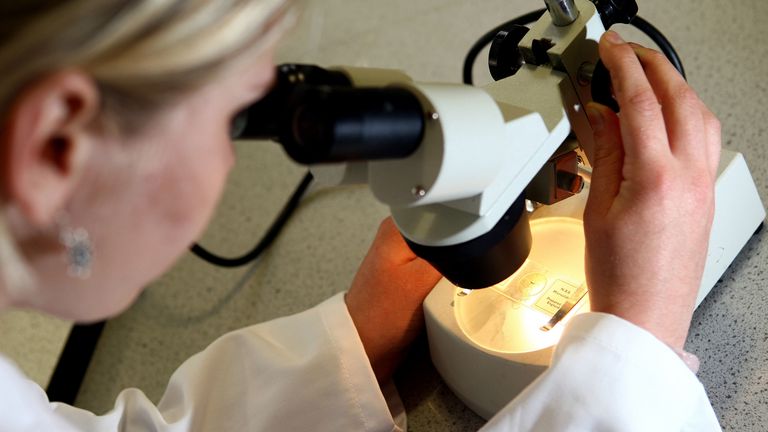A simple at-home spit test could be used to identify men at risk of developing prostate cancer and save thousands of lives, research suggests.
Preliminary findings presented at the American Society of Clinical Oncology (ASCO) annual meeting in Chicago suggest it is more accurate than the standard blood test as an early assessment tool for the disease, which claims around 12,000 lives a year in the UK.
The research could help “turn the tide on prostate cancer” by offering a cheap and easy-to-use alternative to screen for the disease, the researchers at the Institute of Cancer Research, London, and the Royal Marsden NHS Foundation Trust said.
It could also spare many others who are at lower risk from unnecessary and invasive treatments, they added.
The trial involved 6,142 men aged 55-69 recruited from their GP surgeries – they were deemed to be at an age where the risk of prostate cancer is increased.
The researchers calculated their polygenic risk score, which is based on 130 genetic variations in the DNA code linked to prostate cancer.
Those with the highest risk scores – 588 men who carried many of these variants – were invited for further screening.
The team found the saliva test gave fewer false positive results and discovered a higher proportion of aggressive cancers than the standard blood test, which measures levels of a protein called prostate-specific antigen (PSA).
After an MRI scan and biopsy, 40% of men with high scores from the saliva test were diagnosed with prostate cancer.
With PSA tests, only 25% of men with a high PSA level will actually have prostate cancer, the researchers said.
This is because the test is not accurate enough and can falsely indicate cancer in men three out of our times, and can miss cancers requiring urgent treatment and detect ones that are unlikely to ever be life-threatening.
‘Because of this study two lives have been saved in my family’
One 71-year-old man was diagnosed with prostate cancer while taking part in the trial three years ago.
Dheeresh, from Brighton, underwent surgery to remove part of his prostate and is doing well.
“I was completely shocked when I received my diagnosis as I had absolutely no symptoms at all, so I know I would never have been diagnosed at this stage if I hadn’t joined the trial,” he said.
“Because the saliva test revealed that I had a high genetic risk of developing the disease, my younger brother, who would have been too young to join the study directly, signed up and discovered that he also had an aggressive tumour in the prostate.
“It’s incredible to think that because of this study two lives have now been saved in my family.”
Professor Kristian Helin, chief executive of ICR said: “Cancers that are picked up early are much more likely to be curable, and with prostate cancer cases set to double by 2040, we must have a programme in place to diagnose the disease early.
“We know that the current PSA test can cause men to go through unnecessary treatments and, more worryingly, it’s missing men who do have cancer. We urgently need an improved test to screen for the disease.”



























